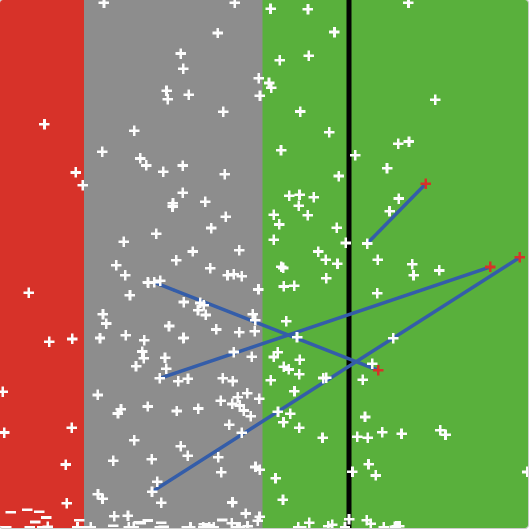"Y'all are just too sensitive"
A computational ethics approach to understanding how prejudice against marginalized communities becomes epistemic belief

Members of marginalized communities are often accused of being “too sensitive” when subjected to supposedly harmless acts of microaggression. This paper explores a simulated society consisting of marginalized and non-marginalized agents who interact and may, based on their individually held convictions, commit acts of microaggressions. Agents witnessing a microaggression might condone, ignore or condemn such microaggressions, thus potentially influencing a perpetrator’s conviction. A prototype model has been implemented in NetLogo, and possible applications are briefly discussed.
Preprint available on arXiv.Model
Links
Identifiers
BibTeX
@misc{10.48550/arXiv.2207.01017,
author = "Johannah Sprinz",
title = ""Y'all are just too sensitive". A computational ethics approach to understanding how prejudice against marginalized communities becomes epistemic belief.",
year = 2022,
month = "Jun",
howpublished = "Preprint, arXiv",
doi = "10.48550/arXiv.2207.01017",
}